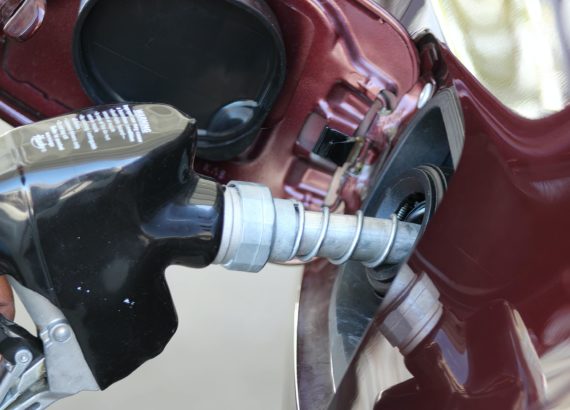Breaking Free from Debt

Photo credit: National Debt Relief
Breaking free from debt is one of the most popular goals listed in aiming for a better quality of life. Financial health cannot be disassociated with physical wellness since the weight of uncontrolled debt eventually takes its toll on the person battling it. Many people go through serious emotional trauma when faced with insurmountable debts. One thing sure is that there is a way to recover from debt but that way is never easy.
Who Gets into Debt?
During the course of human life, people will incur some financial debt one way or the other in varying amounts. Common sense dictates that the smaller the amount of debt, the easier it is to repay. It is therefore not recommended to take out a loan or any other form of financial obligation that cannot be sufficiently covered by regular income. In fact, financial gurus strongly advise to leave at least 40% of income free for other needs aside from payment of obligation.
It is easy to generalize that people who get into unmanageable debt deserve what they get. Although there are people who seem to purposely court danger by spending extravagantly, unnecessarily, and proudly, there are “good” people who make bad financial decisions either due to necessity or unrealistically optimistic expectations. These are the very people who suffer the most once the consequences of bad financial decisions set in since there is no ill intention of not paying from the very start.
What to Do When in Serious Debt
1. Face the Debt
Acceptance of the real situation when confronted with a problem is always the first step towards the solution. One of the main reasons why people get into serious debt is the continuous denial that there is already a certain difficulty being experienced long before the actual hit of financial disaster is acknowledged. This is when over-optimism should be tempered by common sense and reason.
2. Assess the Totality of Debt
When facing debt, it is always best to make a general assessment of the totality so that every little thing can be considered when a solution is being drawn. It would be impossible to clear out debt if there are certain obligations that are neglected. Any gain made on one can easily be offset by the added interest on another.
3. Face the Creditor/s
The usual mistake people in debt do is to further compound their woes by hiding from creditors. Being unable to pay a debt on time is bad enough but evading responsibility regardless of personal circumstances is worse. Hiding gives creditors more reason to opt for more aggressive collection efforts that usually result to embarrassment and extreme stress on the part of the debtor.
4. Propose Payment Arrangement to Creditor/s
It is a fact that once debtors default from payment for a set period of time, financial institutions and creditors can categorize them as delinquents. Unfortunately, delinquent account holders are usually accorded a different treatment from that given to debtors in good standing. There are many horror stories of how collection agencies purposely make life more difficult for delinquent debtors but it has to be understood that no reputable financial institution like banks and credit card companies would publicly acknowledge that they condone such actions. This is because such malicious actions are not allowed by law. Creditors can pursue all legal means to collect but they or their assigned agencies cannot use unlawful means to achieve their goal. Delinquent debtors however should exert all efforts to finish the financial obligation by proposing a payment arrangement that they can do. Creditors will need to agree with the proposal thus the need for some negotiation between parties.
5. Follow Through With the Agreed Arrangement
Once an agreement between creditors and debtors is reached, both parties are expected to respect the terms of their agreement. It is incumbent upon delinquent debtors to request consideration from their creditors when at some point some eventualities arise that will prevent them from performing strictly the provisions of the agreement. Many agreements go through further negotiation especially when delinquent debtors continue to experience financial difficulty. The important thing for debtors to do is always to exert their best efforts in fulfilling their obligation since creditors tend to be more lenient to those who manifest their willingness to pay in spite of continued personal difficulties.
6. Eliminate Unnecessary Expenses
This is the perfect time to differentiate between needs and wants. Needs have to be provided for. Wants need to take a backseat until financial wellness is obtained. Extreme care however should be taken in order not to repeat the problem in the future.
7. Work More
Delinquent debtors need to earn more to cover any payment arrangement they have entered into. The only way to finish an obligation is to pay for it thus the need to earn more by working more. Health however should not be sacrificed when doing this since sickness only results to more expenses which can be put to better use for the family. Creditors should allow their debtors with existing agreements and who faithfully comply, to work in peace by not resorting to any more stressful collection strategies.
8. Start a Savings Program and Keep at It
A person who has no savings left in him is bound to return to debt in time since there will no buffer for emergencies and other unexpected expenses. The formula of Income minus Savings equal Expenses should be observed. Saving should be a consistent and continuous effort to be fruitful.
9. Live Within Your Means
Trouble begins when people spend more than what they earn. It also helps not to spend any money which has not been actually received. Big-ticket items like a new car or travel requires careful planning and saving.
10. Live Simply while Enjoying Life
People need to discover what makes them truly happy without resorting to “buying” happiness. No amount of money or material things can cover up a void. A simple life leads to contentment and peace.
My Say
No person would like to have unpaid obligations and creditors running after him. If in spite of best efforts, a person still finds himself facing a large debt, there is no other solution but to make the necessary changes to the reasons that led to such debt. Once the debt issue has been resolved, extreme care should be taken not to return to the same problem. Breaking free from debt is not easy but it can be done.














jheylo
If we owe anyone we should face them and stop running away from them. Well, here in America, no one can escape debts because everything is recorded by the credit agencies and they’ll hunt you wherever you go, you’ll be surprise to know that after running away from them they’ll still find you through your SSN hehhehehe.
Teresa Martinez
That is really something to think about when people decide on what to do with their debts.
Mommy Liza
Being debt-free is my ultimately dream, but I guess I long as I am breathing, I will have debts 🙂
Teresa Martinez
In today’s way of life, it seems impossible to be totally debt free. We just need to minimize doing what could potentially be problematic in the future.
Angela Ricardo
Great pointers here. Thank you for sharing.
Teresa Martinez
Thanks for visiting.
jared's mum
one of my financial goals this year, apart from saving + saving some more, is to pay up my outstanding debts. luckily, i do not have much, just this salary loan from sss which i have not been able to pay since i resigned from work after i gave birth to my little man. this year i plan to pay it all up + pick up where i left off in terms of my sss contribution…
Teresa Martinez
Good for you. Keep up the good work.
Chubskulit Rose
Settling your debt in a timely manner is a must but there are circumstances that prevent us to do so sometimes but still, you have to adhere to the right measures in order not to default with your payment.
Teresa Martinez
You are absolutely right. Sometimes the willingness to pay is there but the capacity to pay is quite wanting.